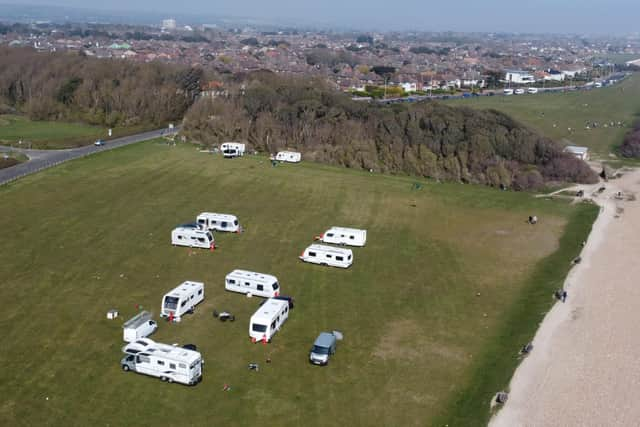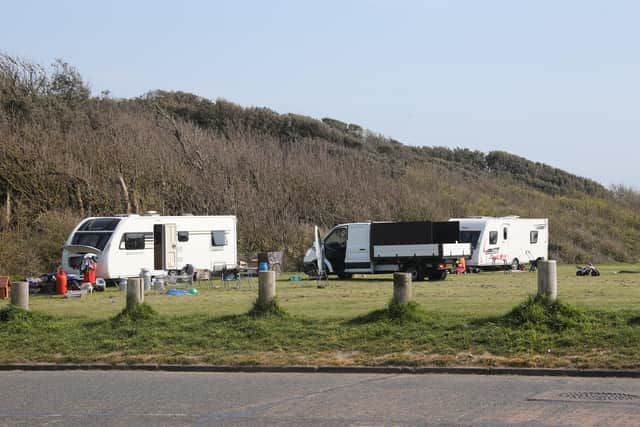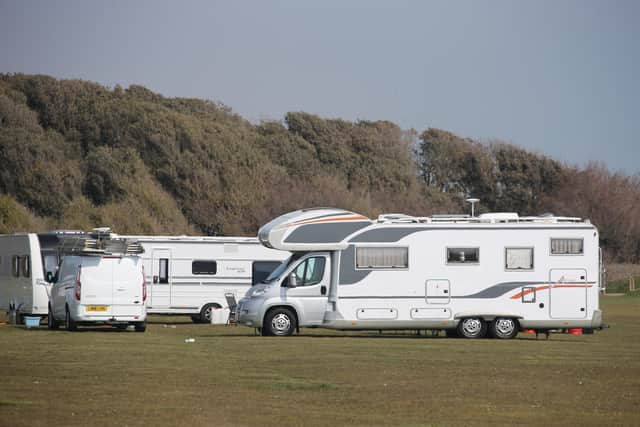Travellers move into Goring Gap – what are their rights and what can the authorities do?
and live on Freeview channel 276
A spokesman for Sussex Police confirmed officers have attended the site to make an assessment and are liaising with the council.
The local Neighbourhood Policing Team are continuing to patrol the area, a spokesman added, and are visiting regularly to engage with the travellers and the community.
Advertisement
Hide AdAdvertisement
Hide AdMP Sir Peter Bottomley said: “The nomadic life is an accepted tradition. Travellers’ incursions cannot continue with forced entry or serious adverse impact on the settled community.


“My team and I remain actively engaged with local communities, both settled and travellers, as well as with the police in response to recent events.”
Here we look at travellers’ rights and what the authorities can do...
Who are Gypsies and travellers?
Gypsies and travellers travel the country as part of a nomadic way of life.


Advertisement
Hide AdAdvertisement
Hide AdAs with any other individual, all gypsies and travellers have rights under the 1998 Human Rights Act.
Romany Gypsies and Irish Travellers are also protected against discrimination on the basis of their ethnic origins under the 2010 Equalities Act.
In 2014, Amnesty International estimated there were 200,000-300,000 Gypsy and Irish Travellers in the UK.
What is an unauthorised encampment?


This is when a group of people with vehicles trespass on land with the plan to reside there without the owner’s consent. This is a civil matter not a criminal offence.
What must the council do?
Advertisement
Hide AdAdvertisement
Hide AdThe council will check to see how tidy the site is, how much it is disrupting local residents and businesses, and whether it is obstructing highways or public rights of way.
The council must also check the general health and welfare of the group and the children’s education.
Usually the council will try to negotiate a leaving date with the travellers rather than having to go down the more costly court route.
However, if this is not possible, the council must follow a set procedure which involves proving ownership of the land, giving details of the illegal encampment, and then serving notices and summonses in order to successfully obtain a court order to evict the travellers from the site.
What can you do if they are on private land?
Advertisement
Hide AdAdvertisement
Hide AdIf they are camped on private land without the landowner’s permission it is the landowner’s responsibility to prevent it and evict them. This can be done by asking them to leave and by starting court proceedings.
What can the police do?
Police will visit sites reported to them and if there are six or more vehicles, officers can use powers under section 61 of the Criminal Justice and Public Order Act 1994.
They will take action if criminal activity, public disorder or disruption to the local community can be established.